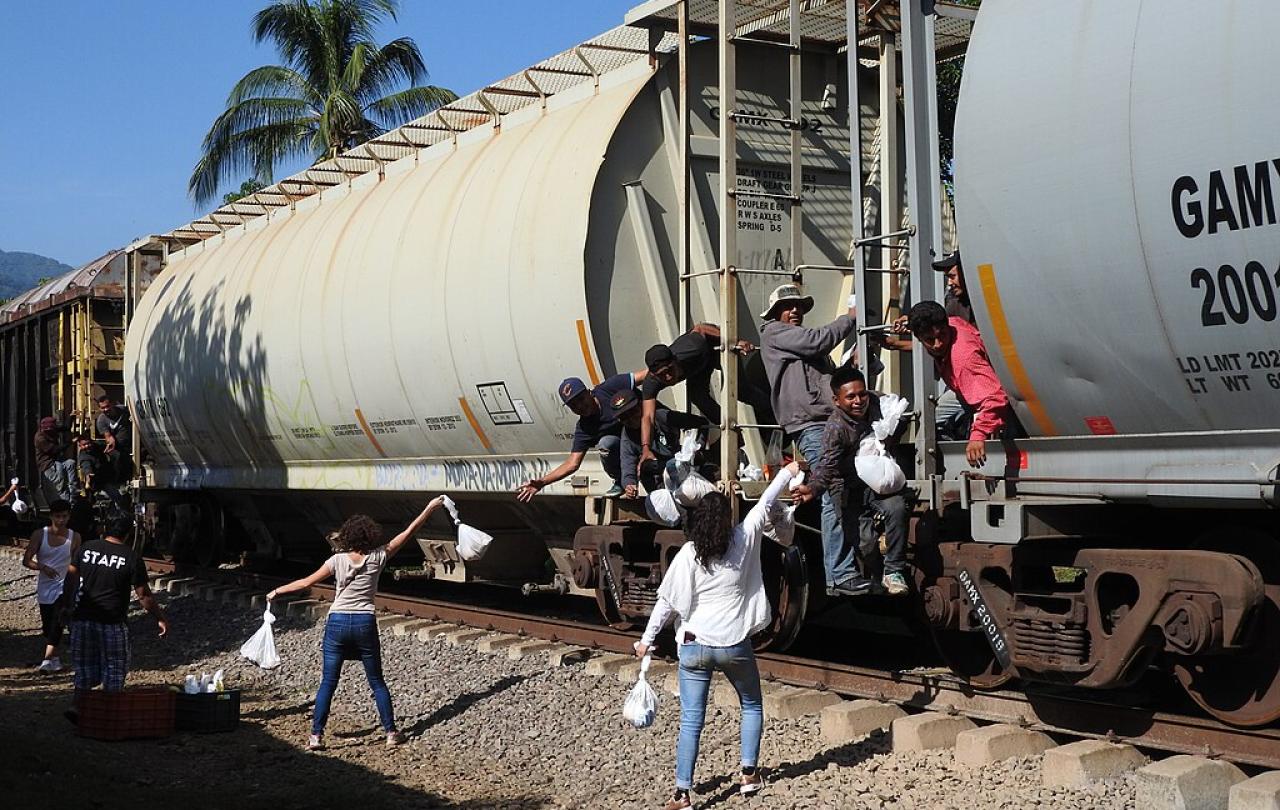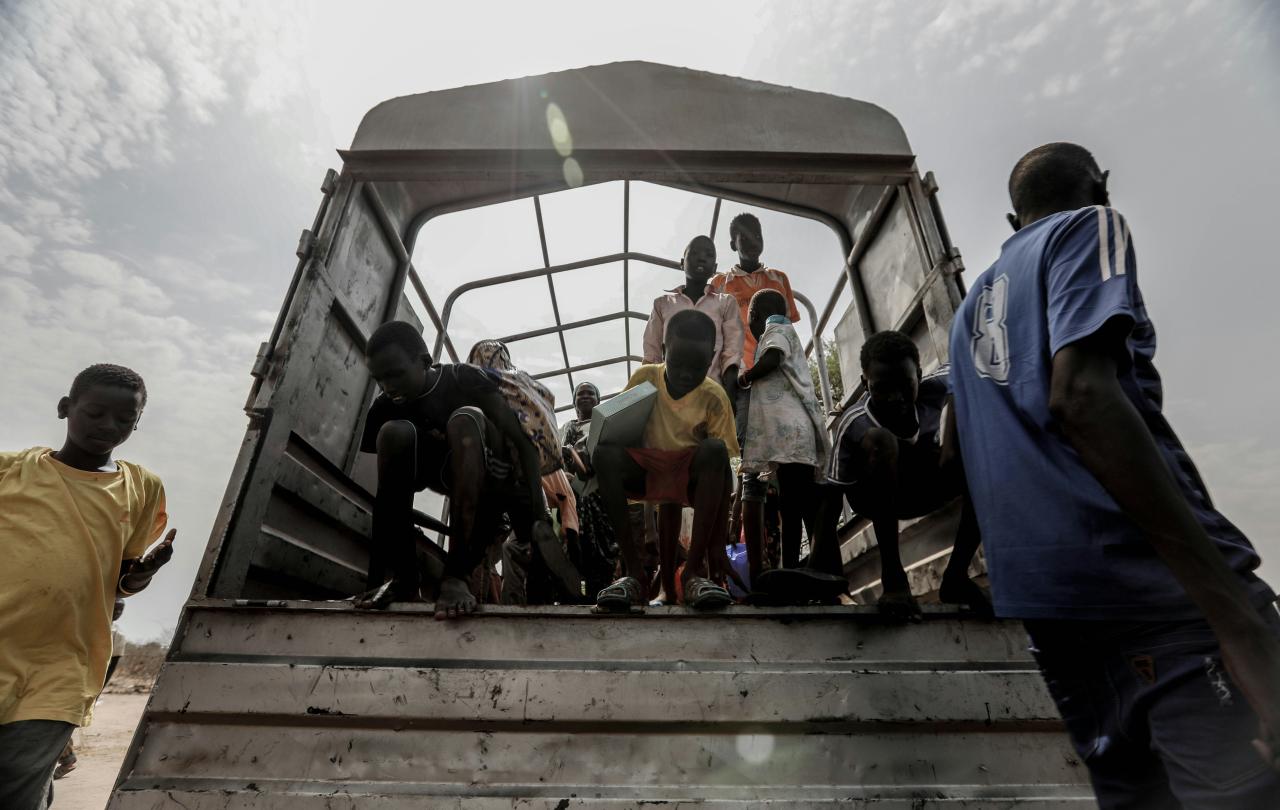
I’ll never forget the sight, 10 years ago this month, as I hitchhiked north through Mexico, of dozens of migrants hanging off the side of a goods train as they made their own journeys towards their Promised Land.
Like me, these migrants - of whom there must have been at least 30 - were heading for the United States. Unlike me, they were doing so not for fun but for their futures.
“Come with us!” some shouted, as my wife and I lugged our backpacks towards what we hoped would be our next successful hitchhiking post, having begun our journey seven months prior at the southern tip of Argentina.
We declined the offer, but I wondered then - and still do - whether they had known we were in a different position to them, or had simply assumed us to be in the same metaphorical boat.
Around the same time, a new wave of refugees were making their way westward across Turkey and Europe, in a reversal of my first hitchhiking adventure, which took me eastward from the UK to Malaysia. And again, I found the contrast between the respective circumstances of our two journeys confronting.
There I had been, a post-university thrill-seeker, taking to the road with my best mate to open my eyes to the big wide world beyond these shores, and now six years later, these poor souls were moving in the opposite direction - again, not for fun, but through sheer desperation.
Many were fleeing ISIS, who took control of Mosul while I was hitchhiking through Brazil at the time of the 2014 Football World Cup. My chief concern during those days were the occasions hitchhiking proved less straightforward. On some days, we had to wait hours for a ride. Sometimes, night would set in as we waited, and we were forced to call it a day.
There were times, too, when we fell foul of the law, such as in the States, where a policeman told us off for hitchhiking on the freeway. But undoubtedly the most challenging moment of that trip was the time we ended up back in the same hotel we had been in two days prior, having done a 1,000km round trip only to find ourselves right back where we started.
This came about in Prince George, Canada, after we had been encouraged by a trucker on the so-called “Highway of Tears” to take a different route to our final destination: Alaska. I can still remember the feeling, as I woke up early the next morning, in the very same room of the very same hotel, of such a lot of effort wasted and a deep desire to get moving again as swiftly as possible, if only to enjoy a sense of progress.
No doubt, there have been many refugees who have experienced the same emotions - only, one imagines, with much greater intensity. Perhaps they have been deported back to where they began their journey, or simply sent back to the last country from which they arrived, in the process undoing in their minds and hearts all of the efforts that went in to getting them there.
No doubt, many of these refugees will also have fallen foul of the authorities. Some, will have been detained; others deported. Perhaps some will also have been told off for walking on a highway, or illegally crossing a border, as I myself tried to do between Bangladesh and Myanmar back in 2008 - only to be picked up by a border patrol and taken back to where I’d started again.
Yet, unlike me, I doubt many refugees were offered helping hands by strangers along their way, or at least not so frequently, and I expect many more of them experienced harsh words from passersby than the few jokey thumbs-downs or shouts of “gringos!” that I received on my own journeys.
And while I, with my Great British passport, was able finally to arrive at my goals and to feel the joy of that completion, many refugees will not have been so fortunate. And while I was able eventually to return home and continue my life - in whatever way I saw fit - for many refugees, their own journeys will still be ongoing, and there will still be a lack of clarity regarding what the future may hold.
I always used to say, standing beside the side of the road, that if only we knew how long it would be until the next ride, we needn’t worry. If someone could tell us that in four hours we’d be picked up, or that although we wouldn’t get another ride that day, that on the very next we’d be adopted by a lovely family who would end up taking us with them for 10 days (as happened in northern Argentina), then all our worries would melt away.
I felt the same way during the years in which my wife and I struggled to conceive, post-adventure. Were someone to have told us then that in a few years, we’d have three beautiful boys, we need never have suffered such heartache.
So too for refugees: if only someone was able to tell them when, where and how their journeys would end, they would be able to come to terms with what lay ahead, and to stop feeling so anxious about the many unknowns.
But of course that’s not how life works - whether you’re lucky enough to have been born with a British passport that enables you to see all the world has to offer without a second thought, or whether you’ve had the misfortune of being born in a country within which you find yourself unable to remain.
I have long wrestled with the question of whether my travels were simply a selfish waste of time. Not that they didn’t bring me great joy and truly opened my eyes to the big wide world - they most surely did - but whether I might instead have used that time in some nobler endeavour.
I find encouragement today in knowing that my love of people of different countries - and especially Iran - was birthed during those travels, and that I probably would not be doing the job I am now, had it not been for those experiences. But it doesn’t make it any easier to reconcile the contrasting journeys of travellers and refugees, which although they may share many parallels, also exhibit some stark differences.





